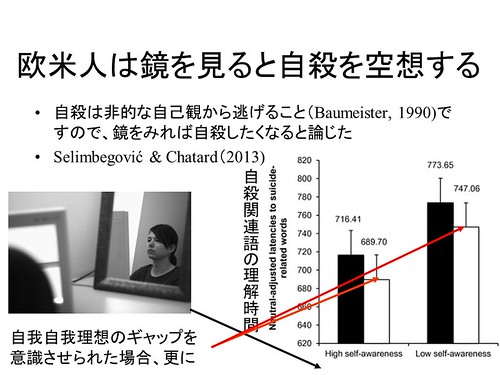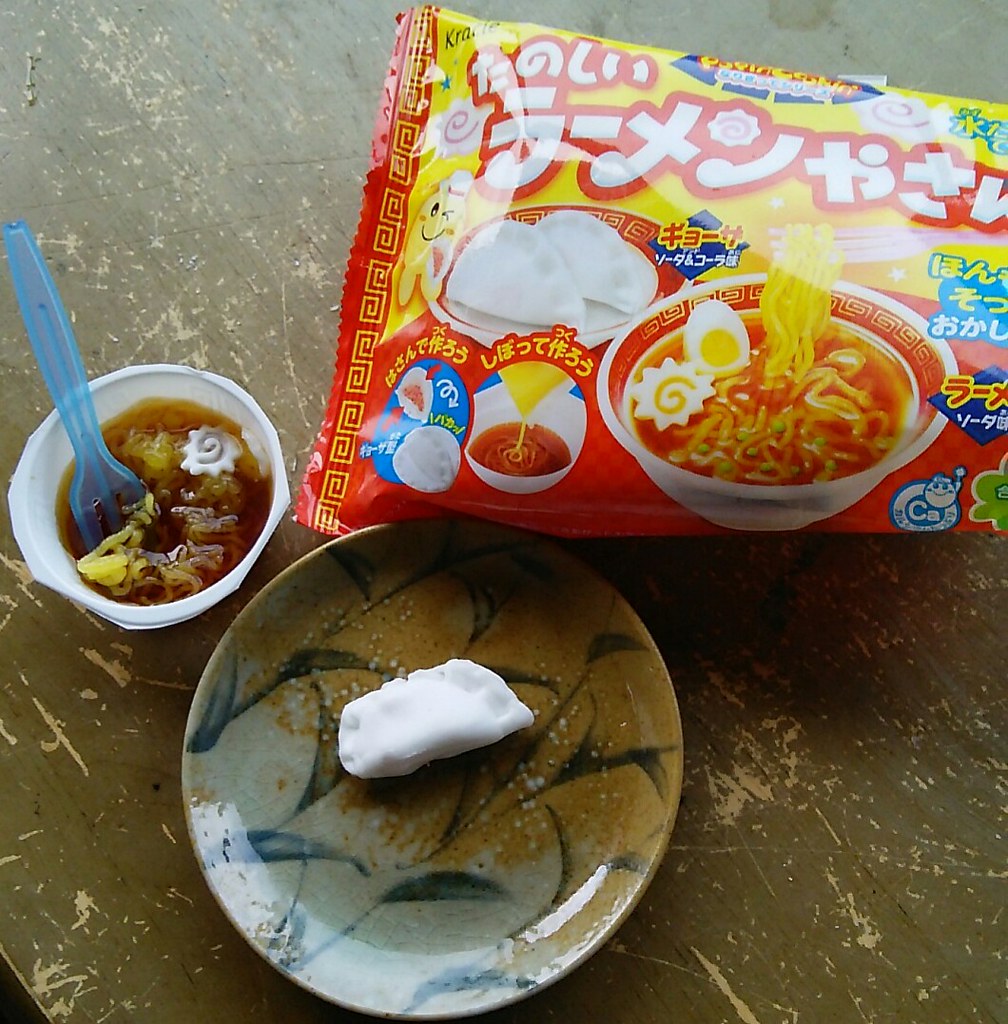Tuesday, May 17, 2016
Images of Japanese People

As reported in the Softbank Group's online news paper (ITmedia, 2012), the Japanese advertising and public relations company, Dentsu asked 3772 non-Japanese in 16 regions what they thought of the Japanese.
ソフトバンのオンライン新聞(ITmedia, 2012)電通が16地域の3772人の外国人に日本人に対して持たれているイメージを調査しました。
The results given above show that words associated with the Japanese are predominantly positive despite the fact, it seems to me, the Japanese pay little attention to public relations. Positive associations, such as "creative" were strongest in South East Asian countries, where, I presume, there is especially high consumption of Japanese produced media, such as popular music and manga. Despite the fact that these positive images I rather fear that the Japanese are going to throw all this love away.
上の図に示されている結果では、日本はそれほどPRに注意を払っていないのに、主に肯定的な言葉が思い浮かばれた。「想像的」など肯定的なイメージは、JPOPや漫画など日本のマスメディアが消費されている東南アジアでもっとも高い。こんなに肯定的なイメージがもたれているのに、日本人がこのような日本に対する愛を台無しにするという恐れがあります。
I would like to rate "meek" as positive but I have kept to the positive / negative ratings in the original article. Several of the items, such as "kodawari no aru" which I have translated as "discriminating," were rather difficult to translate. "Solidarity" is short for "have a sense or solidarity" which may be coextensive with words with a negative connotation in the West, such as "conformist" or "a herd." I wonder at how the items were selected and fear perhaps they were selected by the Japanese.
「おとなしい」を肯定的な項目として分類したいですが、元々の記事にあった肯否判断を尊重しました。"discriminating"と英訳してみた「こどなわりのある」などの項目は英訳しにくかった。項目選びはどのように行われていたかはわからず、日本人が選んだ恐れがあると思われます。「連帯間のある」は(Have a sense of)"Solidarity"と英訳してみましたが、「右へ倣え」「群れている」など少なくとも欧米では否定的なイメージのある言葉と重複するとも考えられる。
The Japanese are very interested in what people from other countries think about them since it seems to me, and as argued by Mori (1995), the Japanese lack a linguistic Other and so find it difficult to narrate themselves objectively. The Japanese have instead an autoscopic, mirror-mind, so they know what they look like and that Japan is beautiful.
日本人は一般的に海外でどのように思われているかについての関心が高い。それは森(1995)が論じるように、日本人は言語的な《他者》をもっておらず、自分らを客観的に物語ることが難しいからだと思われる。日本人は反省・自己視的な、鏡としての心をもっているので、自分らがどのように見えるかは日本が美しいということはご存知だと思います。
The original Dentsu News Release can be downloaded from the Dentsu website in pdf form here (in Japanese). The translations are mine.
元々の電通の調査はここからPDFファイルとしてダウンロードできます. 筆者訳.
お取り下げ後希望でありましたら、コメント欄・nihonbunka.comのメールリンクまでご連絡いただければ幸いです。
Mori, 森, 有正. (1999). 森有正エッセー集成〈5〉. 筑摩書房.
Labels: blogger, Flickr, japaneseculture, nihonbunka, 日本文化
Tuesday, May 10, 2016
Mirrors Make Westerners Want to Kill Themselves

According to the central theory of this blog, the "comforter" of the self in Japan and the West observes the self in a different media. In either case the comforter is based upon the mother. Before we become aware of our mirror image or our names we identify our subjectivity with that of our mother and later learn to see (Japanese) or hear (Westerners) ourselves as an object of her subjectivity or in her frame of reference. In Japanese, more matriarchal society the mother looks and the self is seen. In the West the mother is more passive, she listens. Self expression in the dominant medium of self expression is enjoyable and enhanced, and self expression in the non dominant medium is in each case fraught. Japanese enjoy taking pictures of themselves, posing, and "making (visual corporeal) things". Westerners love expressing themselves, shooting their mouth off, and (as I am doing now) making up theories.
本部論の主たる理論によれば、日本や欧米における自己の慰安者は異なる媒体において自己を傍観している。いずれの場合でも慰安者は母に由来する。自分を物語り、鏡の中で確認できる前に自らの主観を母と同感同一視し、後に母の主観・母の間のなかで自分らを見て(日本)、あるいは聞く(欧米)。より母性原理の強い日本においては母は観る、自己は観られる。欧米での母はより受動的で聞くものとされる(Freud)。主たる優位にある媒体における自己表現は快楽的ですが、それぞれの文化の劣位にある媒体における自己表現は居心地悪い。日本人は自撮りやポーズをとることが好きで、(視覚的な)物づくりを得意とする。欧米人は言語的自己表現や偉そうに話すことも、理論を作ることがすきです。
Japanese have a problem with linguistic self expression and Westerners have a problem with mirrors. Baumeister (1990) theorised that mirrors would increase the desire to escape from self in the most drastic way: suicide. Selimbegović & Chatard(2013) demonstrated this greater tendency towards suicide by testing the amount of time before subjects were able to recognise suicide related words (suicide, rope, wrist, hang, and attempt from nonsense words) in front of a mirror and in a control condition. It was found that subjects became quicker at recognising these words in front of the mirror and that this effect increased when the subjects were encouraged to think about how far they were from their own ideals.
一方、日本人は言語的自己表現が億劫で、欧米人は鏡が嫌い。Baumeister(1990)は鏡を見る欧米人は、「自己から逃げる」最も極端な手法である自殺に走らせると論じた。Selimbegović & Chatard(2013)は、自殺関連語(自殺・紐・手首・[首]吊り・未遂)をナンセンス語から見分けるまでの時間欧米の被験者において鏡の前で早くなるということで、自殺願望への傾向向上を示した。自我と自我理想のギャップを石示唆せられた被験者において鏡の効果がさらにつよくなりました。
In Japan mirrors are used on train platforms to prevent suicide. In the West telephones are used in same way but, as Butler (Butler, Lee, & Gross, 2009) demonstrates, linguistic expression tends to make Japanese MORE stressed.
日本では駅のホームでは鏡は自殺予防に一約を担っていますが、アメリカの自殺名所では電話が設置されます。Butler (Butler, Lee, & Gross, 2009) が示すように、日本が言語的表現をさせられると逆にストレスが増えます。
The recent use of telephones at Japanese suicide spots and Abe's initiative to make all 100 million Japanese verbalise their objectives and become "active" like Westerners (!) is from this perspective, a very bad idea. 日本の自殺名所での電話の設置や、日本人が自分らの行動を言語化し活躍する一億人総括という安倍首相の政策は、上述の立場から考えれば、名案だとは言えないと思われます。
www.flickr.com/photos/nihonbunka/11959516956
Bibliography
Baumeister, R. F. (1990). Suicide as escape from self. Psychological review, 97(1), 90.
Butler, E. A., Lee, T. L., & Gross, J. J. (2009). Does expressing your emotions raise or lower your blood pressure? The answer depends on cultural context. Journal of Cross-Cultural Psychology, 40(3), 510-517.
Selimbegović, L., & Chatard, A. (2013). The mirror effect: Self-awareness alone increases suicide thought accessibility. Consciousness and cognition, 22(3), 756-764.
Labels: japanese culture, nihonbunka, 日本文化
Saturday, May 07, 2016
Fun Ramen Restaurant

Tanoshii Ramen San (楽しいラーメンやさん)is a Japanese confectionary which allow children to make soda and cola flavoured Chinese pasties (gyoyza) and extruded gelatinous "ramen noodles" in a soda "soy sauce" soup. There is even a candy "naruto fish paste twirl." This is one of a series including cake and candy sushi making sets. It is educational especially in its 'hidden curriculum' that teaches children that food preparation is fun, meritorious and to be praised and respected. This and all the other 'activity foods' for adults suggests to me, even if my wife did not make it non-verbally clear, that mother rules, and implicitly that men are the "second sex". http://flic.kr/p/GMmm4E
Labels: blogger, Flickr, japaneseculture, nihonbunka
This blog represents the opinions of the author, Timothy Takemoto, and not the opinions of his employer.
